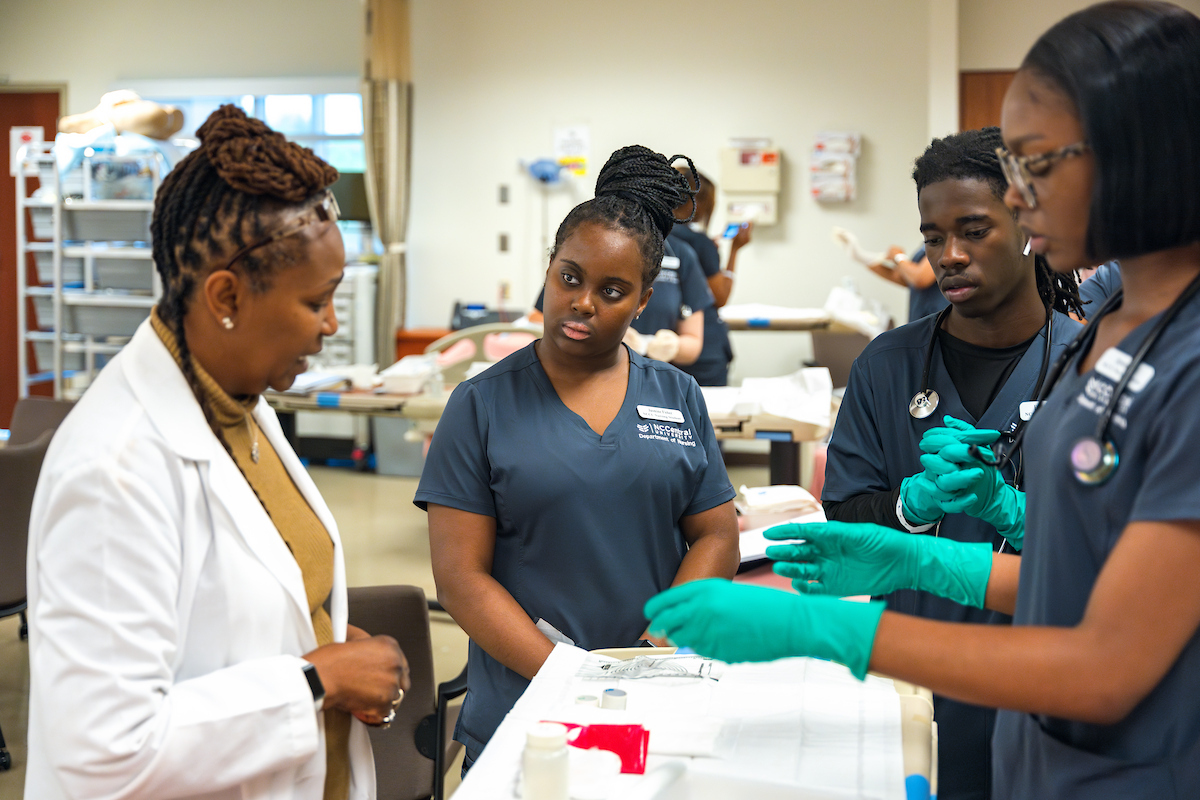North Carolina Central University (NCCU) nursing students are stepping into virtual hospital rooms—and speaking directly to artificial intelligence-powered patients—before ever setting foot in a real healthcare setting.
Through vrClinicals for Nursing, a virtual reality platform developed by Wolters Kluwer Health in collaboration with Laerdal Medical, students gain hands-on, voice-driven training that brings lessons to life.
“Conversational AI adds another important dimension to the complete education of nursing students, allowing them to engage naturally with virtual patients using their own voice,” said Julie Stegman, vice president, Wolters Kluwer Health Learning & Practice. “We understand that the shift from classroom to care setting can be daunting for students—talking to their patients makes the educational experience feel more lifelike, helping build confidence and competence.”
With its latest update, vrClinicals for Nursing now includes conversational AI, allowing students to interact with virtual patients using natural language, surpassing the limitations of point and click communication used in other virtual simulation modalities. This realistic bedside experience enhances clinical judgement, communication skills and confidence – critical elements for nursing education.
Building on a Strong Foundation of Simulation Training
NCCU nursing students already benefit from extensive hands-on training at the Clinical Learning Resource Center (CLRC), also known as Eagle General Hospital. The CLRC supports skills lab training, remediation and simulation experiences, preparing students for real-world clinical practice.
The CLRC features 14 high-fidelity simulators and partial task trainers, providing students with immersive, real-world scenarios. Simulations are integrated throughout the nursing curriculum, from fundamentals to advanced adult health courses, as well as specialty areas like maternity, pediatrics and mental health. These experiences help students develop psychomotor and critical thinking skills essential for safe and effective nursing practice.

Now, with AI-driven VR technology, students have even greater access to immersive, high-impact learning opportunities.
“It is impossible to teach everything a new nurse will face on the job in the classroom alone. Technologies like VR and AI help bridge that gap by providing a flexible, immersive learning experience aligned with the curriculum,” said Tina Scott, DNP, director of experiential learning at the NCCU Department of Nursing. “At NCCU, where purpose takes flight, we equip our students with the skills and confidence to excel in this people-focused profession. VR simulation enhances learning, ensuring they feel prepared to care for patients before entering a clinical setting.”
For more information about the vrClinicals for Nursing platform, visit, www.wolterskluwer.com.
